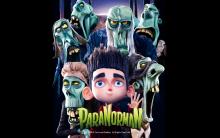redemptive violence

Christians believe that Jesus definitively defeated the forces of evil. For Christians, faith is trusting that the way to defeat evil is the same way that Jesus defeated evil on the cross and in the resurrection. Jesus was no Jedi. He didn’t use “good violence” to protect himself or others from the evil forces that converged against him. Nor did he run from evil. Rather, he defeated evil by entering into it, forgiving it on the cross, and offering peace to it in the resurrection.
Of course, many – even those who profess to follow him – think Jesus is absolutely crazy. As the apostle Paul wrote, “We proclaim Christ crucified, a stumbling block to Jews and foolishness to Gentiles.” It’s true that following Jesus by responding to evil with nonviolent love is risky. After all, Christ was killed, as were his disciples. But fighting violence with violence is also risky and only perpetuates a mimetic cycle of violence.
ON THE AFTERNOON of Dec. 14, President Obama stood in the White House press room, tears in his eyes, and spoke for many Americans who had watched the terrifying events unfolding in Newtown, Conn.
“I know there’s not a parent in America who doesn’t feel the same overwhelming grief that I do. The majority of those who died today were children: beautiful little kids between the ages of 5 and 10 years old,” he said. “They had their entire lives ahead of them—birthdays, graduations, weddings, kids of their own.”
A little more than a month later, on Jan. 23, a pilotless aircraft owned and operated by the United States and controlled remotely by an individual on U.S. soil launched a targeted attack on the riders of two motorcycles in Yemen. The attack missed its target. It hit the house of Abdu Mohammed al-Jarrah instead, killing several people—including al-Jarrah’s two children.
There was no press conference for the al-Jarrah children.
It was President Obama himself, in fact, after his inauguration in 2009, who authorized an expansion of the U.S. drone program launched under George W. Bush. The “Authorization for Use of Military Force,” passed shortly after Sept. 11, gives the president broad authority to use force against those involved in the 9/11 attacks or those who harbor them. Drones have become President Obama’s weapon of choice.

Paranorman, the stop-motion animated feature by Laika Studios just came out on Netflix instant download, so we decided to watch it for our family movie night. It's a fun film, perhaps a bit too scary for the little ones, but what really stood out for me was the surprisingly deep morality in this little film. This comes in an unlikely package since the film is about zombies and witches. Not surprisingly, if you look for Christian reviews of the film you will see many focus on warnings to stay way from the occult. Sadly, this response misses the profoundly deep moral message behind this film — one that confronts religious violence, and instead promotes a message of redemption and forgiveness. That's quite a bit of insight for a cartoon!
The premise of Paranorman is that the town of Blithe Hollow (not coincidentally set in Massachusetts, as we will see later) is about to be overrun by zombies because of the curse of an evil witch. Only Norman Babcock, an odd boy who can speak to the dead, can save the day. The movie begins by having us get to know Norman, who is emotionally isolated because his family does not understand him, and his peers ostracize and ridicule him as a "freak" at school. The only person who believes Norman is his friend Neil Downe, and overweight boy who is himself bullied.
The town is in peril because three centuries ago, an evil witch was executed, and in revenge put a curse on puritan judge and her accusers, cursing them to rise from the grave as zombies. So each year the curse of the witch must be appeased by reading from a mysterious book at the grave of the witch in order to prevent a zombie apocalypse. But this year that does not happen, and the zombies overrun the town. The townspeople and local police form the typical Frankenstein mob, complete with pitchforks and shotguns to kill the zombies. As the mob mentality grows, Norman and his motley band are threatened by the mob as well.
This is the first point where we see the film’s unmasking of "virtuous" violence: in the logic of many films, so long as someone is a "monster" or an "alien," it is okay to kill them. So we have no problem with watching mass killings of monsters or aliens in movies because ... well ... they're monsters. So you're supposed to kill them. That's what good guys do in movies. This is the unquestioned plot of hundreds of movies. As long as the Storm Troopers in Star Wars are faceless, we don't bat an eye when Luke kills one after the other. They have been dehumanized, and so it's okay to kill them all. The same is true for the Orks in Lord of the Rings, or the witch and her minions in the Chronicles of Narnia.

What do you say in the face of evil?
The stories from Monday’s attacks at the Boston Marathon are heartbreaking, gut-wrenching. One in particular stands out to me. A woman was waiting for her husband to cross the finish line when the bombs exploded. For three hours she searched frantically for him, not knowing if he was alive or dead, not knowing if he was frantic and looking for her. Her voice cracked and tears flowed with the raw memory as she told of the moment when she and her husband embraced.
Moments like this, even when they end happily, remind us of our vulnerability. As hard as we try to protect ourselves with heightened security measures, we know that complete invulnerability is impossible. I am vulnerable. My wife is vulnerable. My children are vulnerable. We cannot escape it.
In the face of gun violence and bombings, gender violence and rape, we would be irresponsible not to ask big questions about evil and human vulnerability.
A few hours after the bombing, President Barack Obama addressed our natural desire to carry out justice after these events.
[M]ake no mistake; we will get to the bottom of this. We will find out who did this, we will find out why they did this. Any responsible individuals, any responsible groups, will feel the full weight of justice.
Like the president, I want to take action against evil and I want to know I am secure. I hate admitting that I’m vulnerable. But the president’s words didn’t reassure me. They made me feel more vulnerable because the phrase “full weight of justice” is always a veiled call to violence.

THE CEO OF one of the world's most popular video-game manufacturers recently denied any relationship between his products (some of which have their users re-enact mass slaughter) and real killing. The substance of such denial appeared to some to be no more complex than "because I said so, and some other people agree with me." Meanwhile, in the immediate aftermath of the Aurora movie theater shootings last year, Hollywood producer Harvey Weinstein called for a summit of directors to discuss their imaginary guns. He later acknowledged that "I don't have the answers to these questions. ... They're so complicated; you need people with better facts and intelligence. In this situation I have to be a follower, not a leader." Refreshing humility from someone better known for bluster and self-assurance, now opening a door to a conversation on which lives may depend.
Film critics, too, have a responsibility to contribute to this conversation, so let me propose some ideas:
1. Portrayal and advocacy are not the same thing. The violence of Reservoir Dogs and Looper may be visceral, but it tells the truth about the suffering that guns and knives can inflict and may help people think twice about enacting real violence. The violence ofHome Alone andTransformers may be cartoonish, but it lies to the audience and may fuel appetites for further destruction.
2. The shape of the narrative arc may be more influential than any particular acts of violence. Our culture seems to be addicted to the idea that order can be brought out of chaos by ultimate force, that violence can literally "cleanse the world." This myth—this religion—shows up everywhere, not just in the movies. Indeed, it is a keystone of our politics. The best thing movies can do about it is to tell a different story.

I had a veteran friend once tell me, “The biggest lie I have ever been told is that violence is evil, except in war.” He went on, “My government told me that. My Church told me that. My family told me that. … I came back from war and told them the truth—‘Violence is not evil, except in war… Violence is evil – period.’”
Every day it seems like we are bombarded with news stories of violence—a shooting in Colorado, a bus bombing in Bulgaria, drones gone bad and the threat of a nuclear Iran, a civil war in Syria, explosions in Afghanistan and Iraq.
The recent cover story of Time magazine was "One a Day," showing that soldier suicides are up to one per day, surpassing the number of soldiers who die in combat. The U.S. military budget is still rising—more than $20,000 a second, more than $1 million a minute, spent on war even as the country goes bankrupt.
Our world is filled with violence—like a plague, an infection, a pandemic of people killing people, and people killing themselves. In my city of brotherly love, Philadelphia, we have nearly one homicide a day—and in this land of the free we have more than 10,000 homicides per year.
This week President Barack Obama called the shooting in Colorado “evil.” And he is right.
But perhaps it is also time that we declare that violence is evil, everywhere—period. It’s obvious that killing folks in a movie theater is sick and deranged, but the question arises: is violence ever okay?